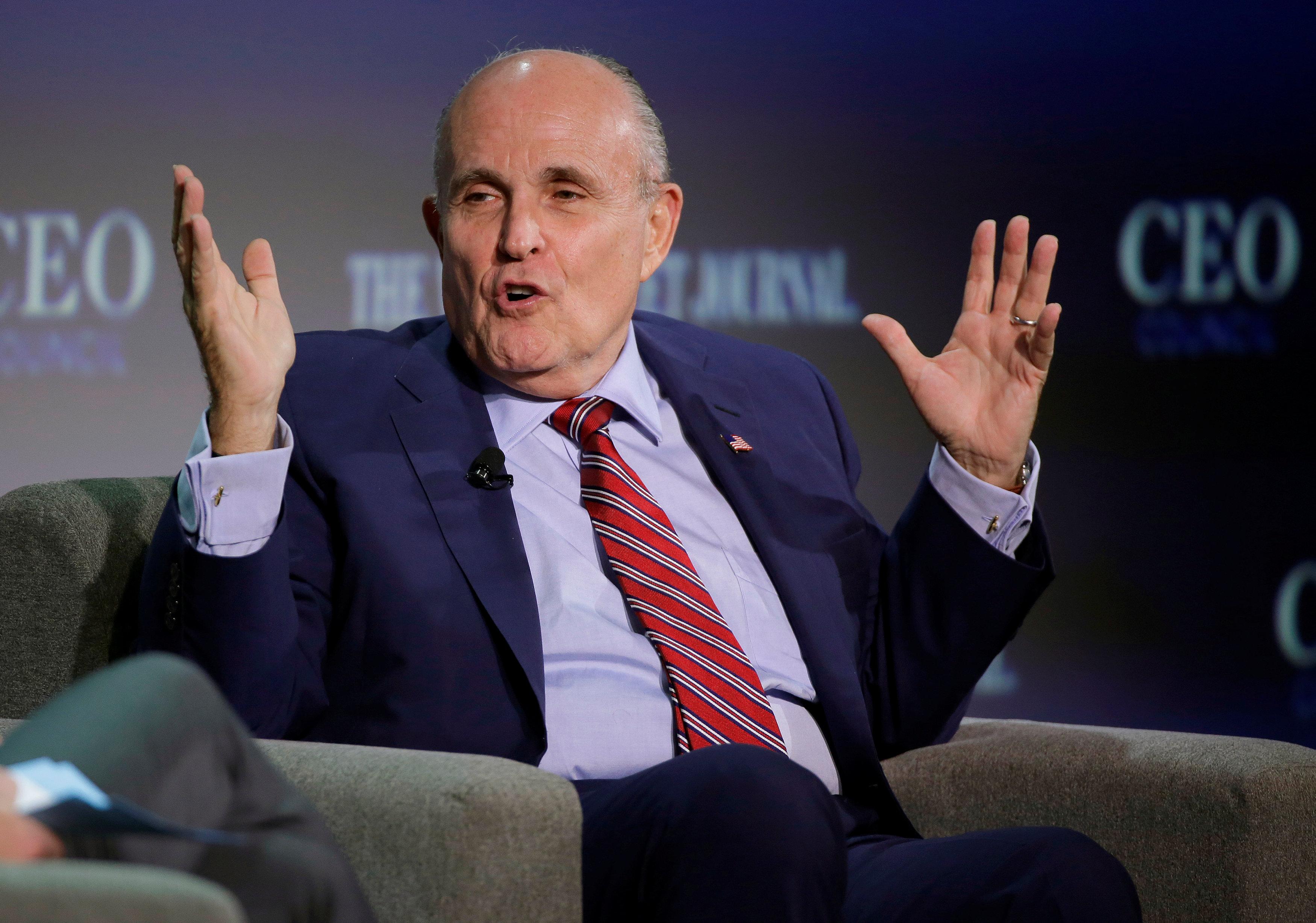The rise and fall of Rudy Giuliani

The arrest and indictment last Thursday of two of Rudi Giuliani’s associates represented a new nadir in his career, particularly when compared to his heyday as a fierce law and order government official in New York. The case brought into focus how foreign money can enable shady characters to take advantage of the US political system. As America approaches the 2020 elections, the news is especially troubling for many in the US and outside.
Giuliani’s direct involvement is still not established, but it is especially ironic that the two individuals are his associates. During much of my life in New York between 1981 and 2000, Giuliani’s name was associated with fighting crime and official corruption. Now there is a gathering cloud over him.
Giuliani’s rise to power in New York politics came with his appointment in 1983 as US Attorney for the Southern District of New York. For six years, he prosecuted organized crime bosses, including the feared heads of the “Five Families” of the mafia (Lucchese, Bonanno, Genovese, Colombo and Gambino). He put big Wall Street figures such as Ivan Boesky and Michael Milken on trial. Giuliani also went after drug dealers and corrupt government officials. In six years, he secured a record of 4,152 convictions.
These convictions, his theatrical methods and clever use of the media got Giuliani noticed. Even though he was a Republican and a Ronald Reagan appointee, he was admired by New Yorkers, who are die-hard Democrats. The Democratic Party controls New York City politics very tightly. The city has not voted for a Republican in a statewide or presidential election since President Calvin Coolidge in 1924.
Giuliani’s much-publicized campaign against corrupt officials paid political dividends. New York government was synonymous with corruption in the eyes of many of its residents. As a one-party town, “legal” graft, as it was facetiously called, was rampant — including nepotism, favoritism and abuse of power for personal gain. There was also illegal graft, and “just plain stealin,” as was chronicled by books such as “City for Sale: Ed Koch and the Betrayal of New York” by Jack Newfield and Wayne Barrett, and numerous movies and TV shows.
Although Giuliani was widely admired, there were numerous critics. He was accused of politically motivated and selective prosecutions. Some felt that some of his actions were designed with his political ambitions in mind.
Nevertheless, armed with his reputation for fighting crime and corruption, Giuliani won the 1993 election to become mayor of New York, despite running as a Republican. Out of 109 mayors in the city’s history, only a handful of Republican mayors have been elected.
During his two terms as mayor (1994-2001), Giuliani continued his anti-crime campaign. He dramatically increased the size and mandate of the police force, adopting a zero-tolerance approach to crime, both petty and grand. He jailed beggars and prosecuted some of his own appointees as city officials.
The Sept. 11, 2001, attacks took place near the end of Giuliani’s second term as New York mayor. His handling of the attacks and their aftermath was his swansong. He became the face of the city as he helped New Yorkers deal with the attacks and start the healing process. In December 2001, Time magazine named Giuliani its “Person of the Year” for 2001.
It is a sad contrast between Giuliani’s current public profile and his role in New York City as mayor and public prosecutor.
Abdel Aziz Aluwaisheg
However, his attempts to use his newly acquired and largely deserved accolades to run for higher office did not succeed. But he gained financially, as his net worth spiraled in the following few years, largely from public speaking and other high-profile work.
His lobbying work afterwards raised some eyebrows, as he sometimes represented unsavory characters and defended unpopular causes, starting a slippery slope toward his current state — a shrill and at times incoherent advocate. TV shows seem to relish his combative style, while at times appearing to mock him. It is a sad contrast between Giuliani’s current public profile and his role in New York City as mayor and public prosecutor.
But last week’s indictment of his associates, Lev Parnas and Igor Fruman, represented a stranger turn of events. According to prosecutors, they were plotting to circumvent US campaign finance laws by hiding the original source of contributions and exceeding donation limits to “gain influence with candidates as to policies that would benefit a future business venture.”
According to reports, the two men were also involved in Giuliani’s dealings with Ukraine, which have figured prominently in the impeachment inquiry currently being conducted by the US House of Representatives. Parnas and Fruman are not the first to be charged with violating US campaign finance laws, but the case has gained notoriety because of their association with Giuliani, President Donald Trump’s personal lawyer, who is directly involved with the impeachment inquiry.
But, from a personal point of view, for Giuliani to be associated with such characters after a long career of upholding law and order is akin to a Greek tragedy in the making.
- Abdel Aziz Aluwaisheg is the GCC Assistant Secretary-General for Political Affairs and Negotiation, and a columnist for Arab News. The views expressed in this piece are personal and do not necessarily represent GCC views. Twitter: @abuhamad1







































